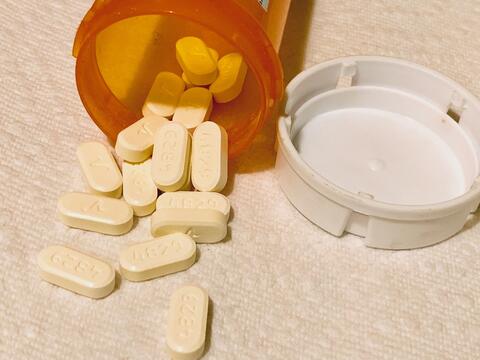Typically, when people hear the phrase “driving under the influence” or “drugged driving” it’s associated with driving under the influence of alcohol.
However, driving under the influence can occur anytime someone uses a substance that may impair their ability to drive, including prescription and nonprescription (also called over-the-counter or OTC) medicines, herbal remedies, illegal/street drugs, and recreational drugs including alcohol and cannabis products.
“Many everyday substances have effects that can make driving or operating certain machinery extremely dangerous,” Diane Calello, executive and medical director of the New Jersey Poison Control Center, said.
“It’s widely known that alcohol use affects a person’s ability to drive, however, it’s not the only legal substance known to result in intoxicated/impaired driving. Other legal substances include prescription and nonprescription medicines, medicinal and recreational THC/marijuana products and CBD products.”
Many medicines and products contain ingredients that cause dangerous side effects like sleepiness, loss of focus or attention, blurred vision, fainting, and decreased coordination.
The following prescription and nonprescription medicines are known to affect your ability to drive safely:
- Anti-seizure medicines
- Sleeping-aids
- Muscle relaxants
- Anti-diarrhea medicines
- Anxiety drugs
- Antidepressants
- Pain medicines
- Allergy products
- Antipsychotic medicines
- Cough and cold products
- Antipsychotic drugs
- Diet pills
- Motion sickness medicines
“Other factors can greatly increase the side effects of medicines and interfere with driving,” Calello said.
“Mixing medicines or products together can cause effects to intensify, which may lead to serious and even deadly drug interactions. Depending on the medicine and the dosing instructions, effects may be felt within a short amount of time and last for several hours to the next day.”
The message about drugged driving is clear — it’s dangerous for you, your passengers, and others on the road.
Law enforcement considers driving while under the influence of legal and illegal substances as dangerous and unsafe as driving under the influence of alcohol. The legal consequences are the same.
“It is important to follow safety and traffic laws, and to understand how the substances you take can interfere with your ability to drive safely,” Calello said.
“If you’re uncertain about whether a substance may impair your judgment or ability to drive, contact your doctor, local pharmacist, or the medical staff at your local poison control center to discuss known side effects. Poison control centers are a great resource for questions, emergencies, and information.”
New Jersey residents with poison-related questions or emergencies can contact the NJ Poison Control Center in the following ways: Call the Poison Help Hotline at 1-800-222-1222; Text 973-339-0702; Chat via the Poison Center’s website.
Do not wait until symptoms occur or spend time looking for medical information online. Contact your local poison control center for help 24/7.
If someone is unconscious, not breathing, hard to wake up, or having a seizure, immediately call 9-1-1.
